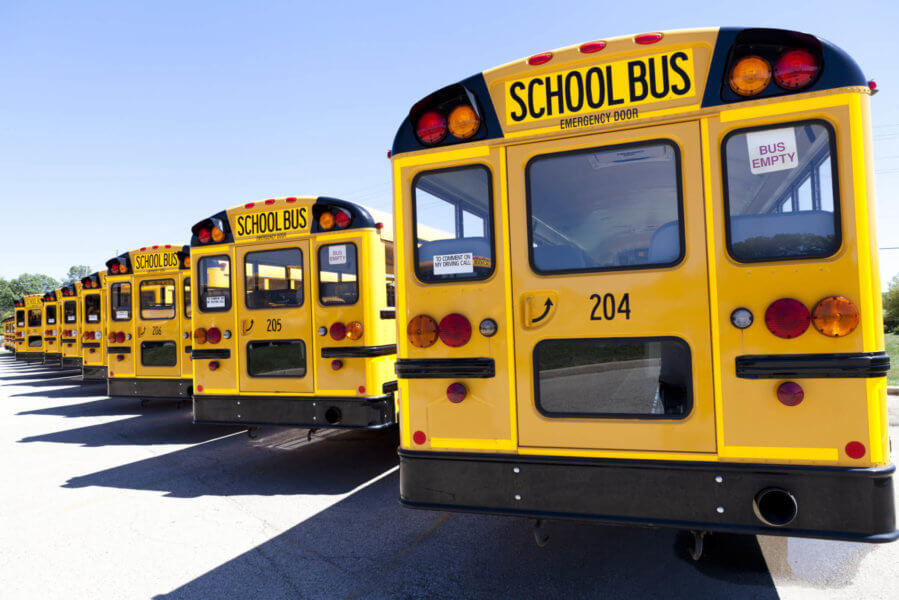
A panel of lawyers and educators said the U.S. has some deeply rooted issues when it comes to education.
CHARLOTTESVILLE-Do all students in the United States have the same access to education? If they don’t, should the federal government be held complicit?
University of Virginia Law Professor Kimberly Robinson recently tackled that question, asking if education should be a constitutional right in her new book, “Fundamental Questions for Our Democracy Regarding a Federal Right to Education.” On Monday, Robinson joined a panel of legal and educational leaders to discuss the deeply rooted issues in unbalanced education.
Federal Involvement in Education (1973)
The federal right to education is a debate that has spanned many decades. During the 1970s, for example, the quality of education for Texas public schools was a heated discussion. Nearly half of the revenue to enhance public education was derived from state-funded programs. As a result, a lot of poverty-stricken localities suffered. Schools with fewer resources believed that the system favored the wealthy.
In 1973, a lawsuit was officially recognized in the court case of San Antonio Independent School District v. Rodriguez. The United States Supreme Court ruled the Constitution does not guarantee a right to education. They also ruled that Texas did not put lower-income areas at a disadvantage. The decision was met with a lot of scrutiny after nothing changed at the federal level. After all, it essentially ended talks of federal litigation to narrow educational funding and opportunity gaps in schools.
The aftermath did spur action at the state level, with reforms to some funding. However, many believed the system was still heavily distorted, and adequate funding was hard to come by. Even today, school systems and advocates are still seeking new avenues to remedy inequitable disparities in educational opportunity.
Discussion of a broken system
Robinson started Monday’s discussion by stating how education shortcomings have a negative impact on a large number of students. According to Robinson, when looking at children of live in districts experiencing high concentrated poverty, there are huge disadvantages. On average, these children receive almost $2,000 less per person than others not facing poverty. In addition, research finds that these same districts receive $23 billion less than districts that do not have high concentrations of poverty.
“These massive funding gaps result in impactful disparities,” Robinson said.
Kristine Bowman, a Professor of Law at Michigan State University, added how identifying the problem is key to finding a solution. Bowman pointed to weak and unenforceable educational rights proposed by the states, limited fiscal capacity, and limited political will as some of the key contributing factors to educational inequalities.
When these components all work together to undermine education opportunity, “children do not have an effective avenue for relief,” Bowman stated.
Why equal education is important
University of Florida law professor Jason Nance gave several reasons why a federal response to education inequality is needed. According to Nance, education inequality threatens economic growth. Because workers with higher education earn more, they provide significantly more tax revenue.
During his research, Nance also found that better education led to reduced criminal activity, which also saves money. Each high school graduate saves the U.S. about $70,000 in criminal justice expenses during their lifetime. Furthermore, a college graduate saves around $175,000.
Nance also used health as reasoning. On average, those with higher education typically live longer thanks to better health coverage, access to medicine, and increased knowledge of healthier living habits. Once again, graduating from high school or college led to sizable savings for the entire nation.
Improved education also leads to improved democratic participation. Those with higher education are more likely to vote, serve on a jury, join the armed forces, or run for public office.
The last rationale Nance identified was fairness. In many cases, a child’s access to quality education is out of their control. Therefore, a lack of equality when it comes to education sends a harmful message.
How do we solve the problem?
One thing all members of the panel agreed on is that education needed to improve. Some, however, didn’t want federal involvement in that process.
Eloise Pasachoff was one of the few panel members against federal involvement in education. Pasachoff, a professor at Georgetown Law, didn’t believe a federal mandate for the right to education was the correct approach. Even if education was to become a constitutional amendment, the problem would not be solved, she argued.
However, Robinson stood strong on her position of federal involvement. As an alternative to a court decision, she stated that Congressional recognition could be just as effective. Essentially, Congress could simultaneously provide resources and support enforcement. She also didn’t rule out further democratic experimentation to find possible solutions.
“It’s important for us to get it right when we do have a federal right to education,” said Robinson.
Brandon Carwile is a freelance reporter for Dogwood. You can reach him at [email protected].

Here’s everything you need to know about this month’s Mercury retrograde
Does everything in your life feel a little more chaotic than usual? Or do you feel like misunderstandings are cropping up more frequently than they...

VIDEO: Check out Dogwood’s new merch line
Big news, Virginia! We've officially launched our Dogwood merch line 🎉 This year, we celebrate 5 years of bringing you Virginia news you can use....

VIDEO: Your support matters!
Your support matters! Donate today. @vadogwoodnews Your support matters! Visit our link in bio to donate today. #virginianews #virginia #community...

Op-Ed: Virginia’s new Democratic majorities pass key bills to improve your lives, but will Youngkin sign them?
The 2024 Virginia General Assembly regular session has wrapped up. It was a peculiar session from the outset, with Democratic majorities in the...

From the state rock to the state flower, here’s how Virginia got its symbols
Have you ever wondered why the Dogwood is the state flower? Or how the cardinal became the state bird? We’re here to answer those questions and more...

VIDEO: Second-gentleman Douglas Emhoff gives speech on reproductive freedom
Second gentleman, Douglas Emhoff touched on reproductive freedom not only being a woman's issue but "an everyone's issue" during the Biden-Harris...




